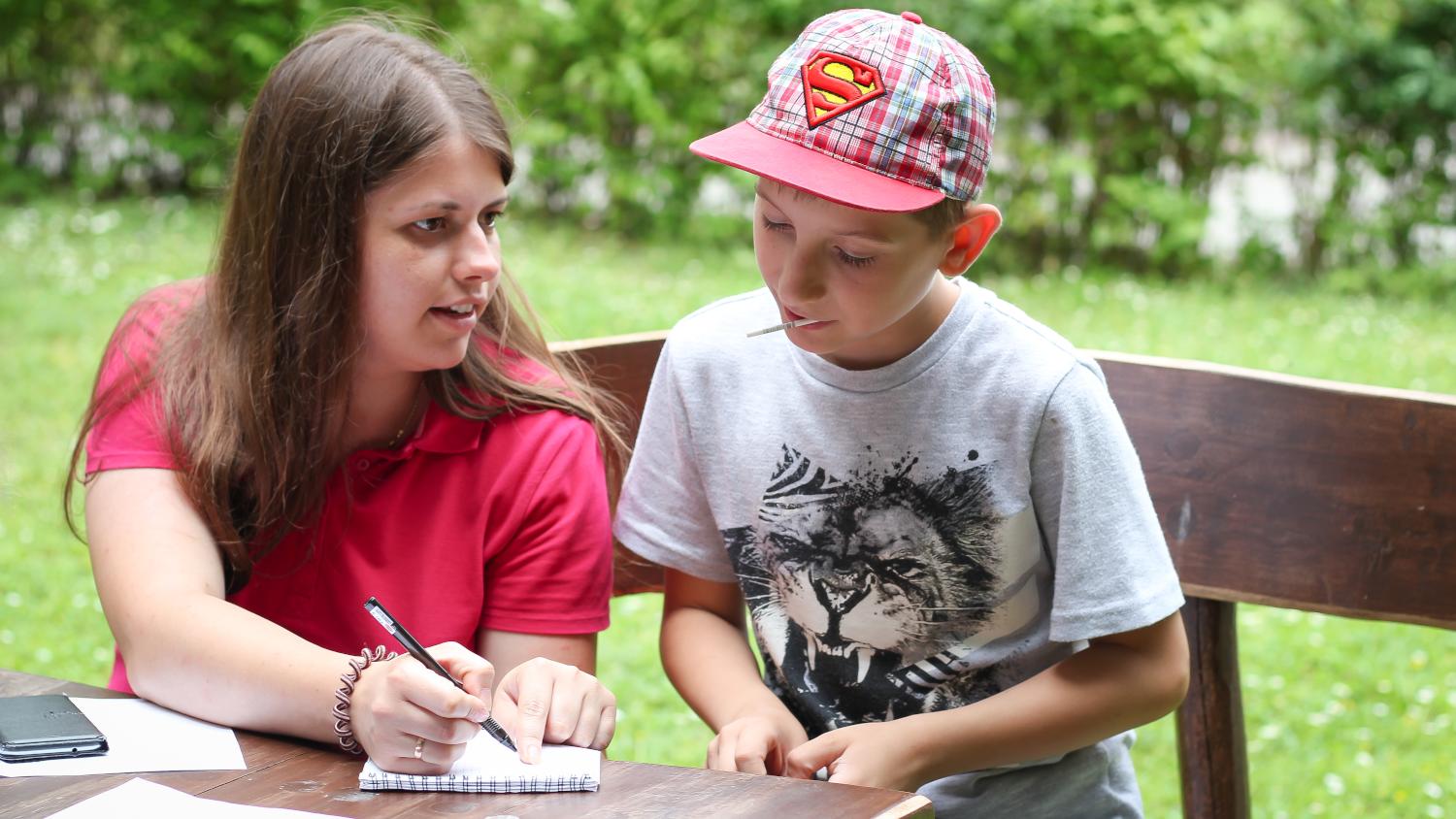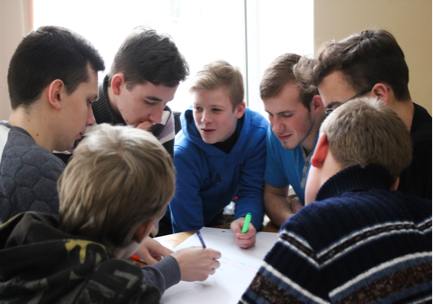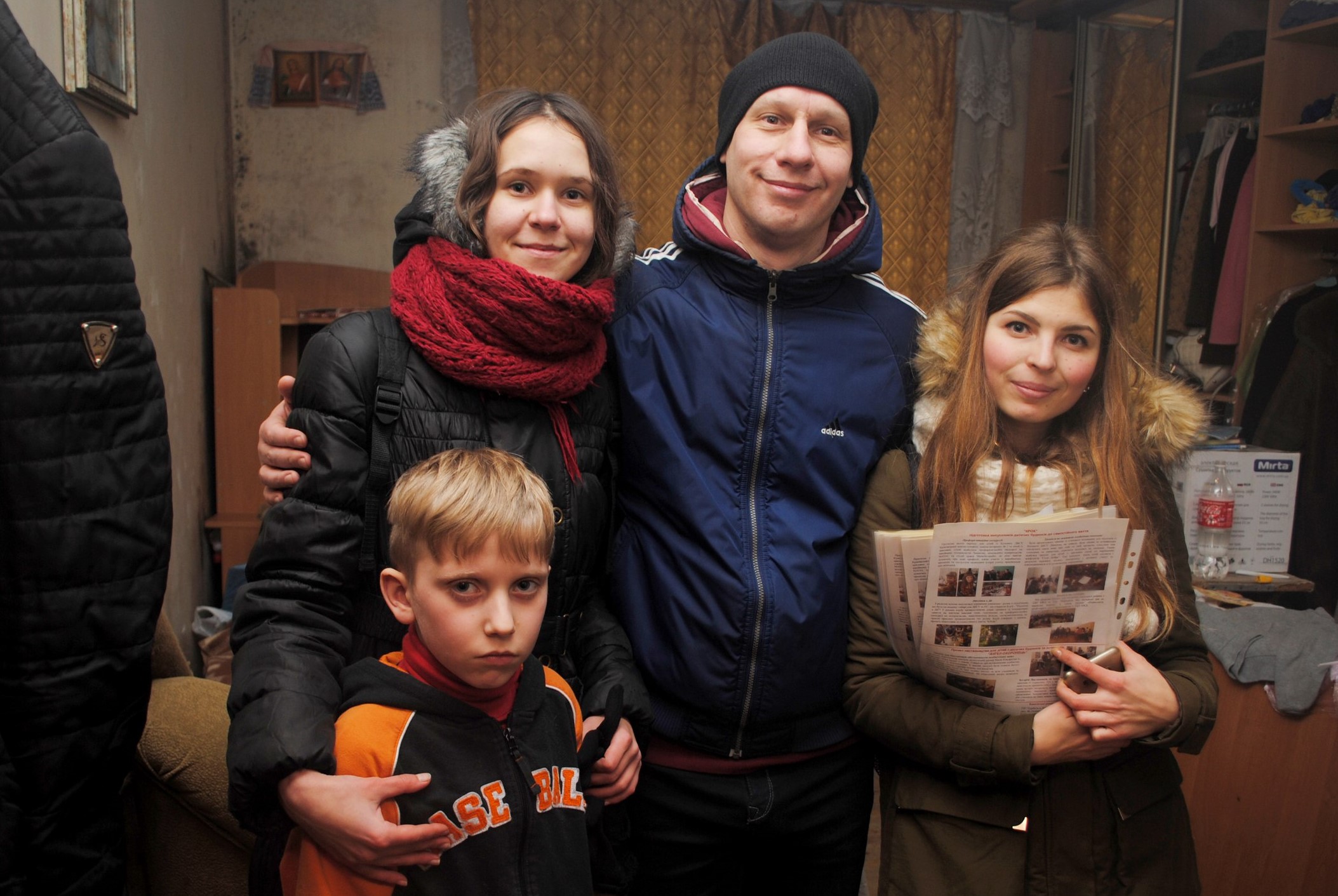At the heart of our mission are children who are among the most vulnerable in society. These are children without parental care, or vulnerable because of poverty or social needs, and young people who lack support for their transition to independence.
In Ukraine
Children without parental care
We recognise the special needs of children who grow up in care institutions, in foster care or with guardians such as grandmothers. Foster Parents care for children who have experienced trauma and need support to provide therapeutic parenting.
- Nearly 1.5% of all children in Ukraine live without the love or protection of a family in some form of residential institution. Of these, only 1 in 10 will successfully integrate into society. (Statistics published by Hope and Homes for Children)
- Only 25% of care leavers (orphanage graduates) have stable employment
Children who are vulnerable
This can be due to poverty, social factors like parental neglect, or a crisis, which also puts them at greater risk of going into institutional care. Because of the war in Ukraine there are increasing numbers of children who are experiencing trauma, disruption to their education and growing up in poverty.
- 92% of children in state care have parents who can’t provide care because of poverty or social problems.
- “The war in Ukraine is robbing children of stability, safety, school, friends, family, a home and hopes for the future. The mental wounds of the war could affect children well into adulthood.” UNICEF
Young people at risk
There is a need to help children and young adults ages 15 to 25 who have problems with supporting themselves and integrating into society, which could be because they don’t have support from their parents or were raised in state care.
Human trafficking in Ukraine is a serious and overwhelming issue. Ukraine is one of the most prominent countries in Europe for human trafficking with over 260,000 Ukrainian trafficking victims over the last 30 years. – The Borgen Project
In Malawi
In partnership with community based organisations we select children who are expelled from secondary school due to poverty but who have the academic ability and determination to continue their studies with our sponsorship. We mitigate the effects of malnutrition and lack of education through funding Early Child Development (ages 2 to 6) and Learning Support (ages 7 to 12).
Malawi is one of the ten poorest countries in the world. AIDS has left many children orphaned, exposed to malnutrition and in extreme poverty. Only 35% of children will enrol in secondary school (UNESCO).
Our Solution
Our goal is to enable children to grow up to succeed in life. Holistic education, which is much more than schooling, is a key to making a sustainable difference, and is our priority. When children and young people need the basics of food, shelter and safety to enable their education, or their transition to self-reliance, we aim to ensure that those needs are met. Our approach helps to reduce trauma and break the cycle of poverty.






